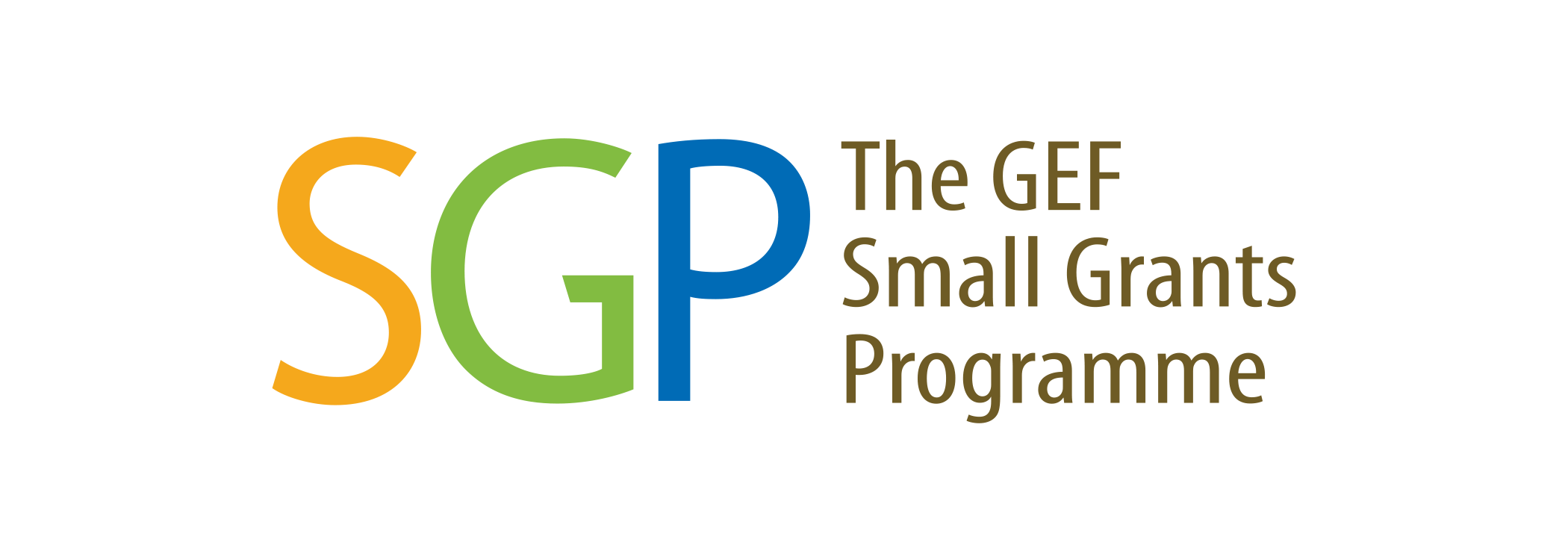In solidarity
South-South cooperation enhances climate action across Francophone Africa
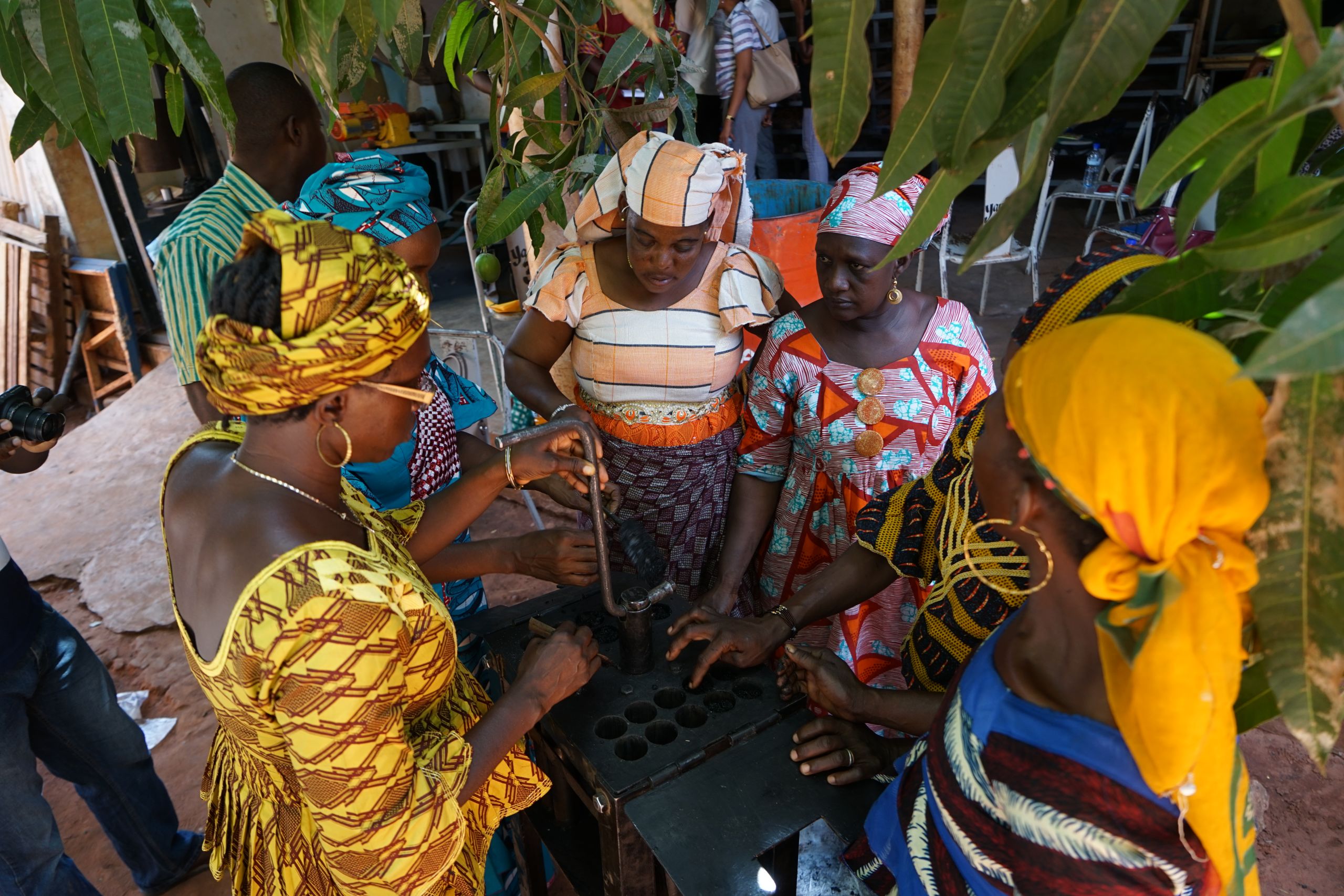
“Africa is unique. We must stop saying that we will always depend on international experts who come from the North to train us, while we have our own knowledge, things that we master, that we know how to do well and that we can share with people in other countries, who can also teach us new things.”
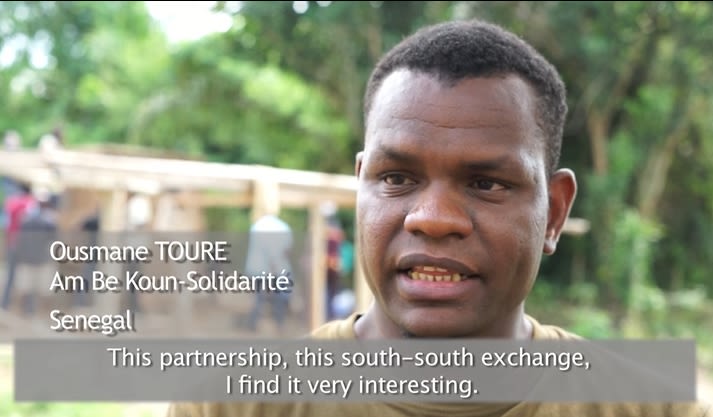
Initiatives Climat
Launched at the 22nd Conference of the Parties (COP 22) to the UN Framework Convention on Climate Change by two civil society organizations, AlliaDev and IGAPURA, Initiatives Climat is a South-South Cooperation Programme among French speaking countries in Africa, funded by the Swiss Agency for Development and Cooperation.
Initiatives Climate is delivered by a strong team of partners: the Global Environment Facility’s Small Grants Programme (SGP), which is implemented by the United Nations Development Programme (UNDP), the Institute Francophonie for Sustainable Development, United Cities and Local Governments of Africa, UNDP Morocco, UN Women, the Ministry of the Environment of Morocco, project DINIKA, and the Government of Canada.

Initiatives Climat is particularly noteworthy for its approaches of tackling deforestation and climate change via identifying, consolidating, and scaling up best practices and nature-based solutions developed by local communities through South-South cooperation in Francophone Africa.
South-South cooperation is a broad framework of collaboration among developing countries of the global South, through which they share knowledge, skills, expertise, and resources to meet their development goals through concerted, coordinated efforts.
This framework is especially important for its recognition of traditional knowledge, coupled with a peer-to-peer exchange modality, both of which are vital in addressing climate change at the local level.
For the GEF Small Grants Programme, one of key partner of the Initiative Climat, South-South Cooperation is one of its key programs to transfer knowledge, encourage the replication of good practices at bilateral, regional and global levels, increase impact, scale up innovative solutions developed by grantees and partners.
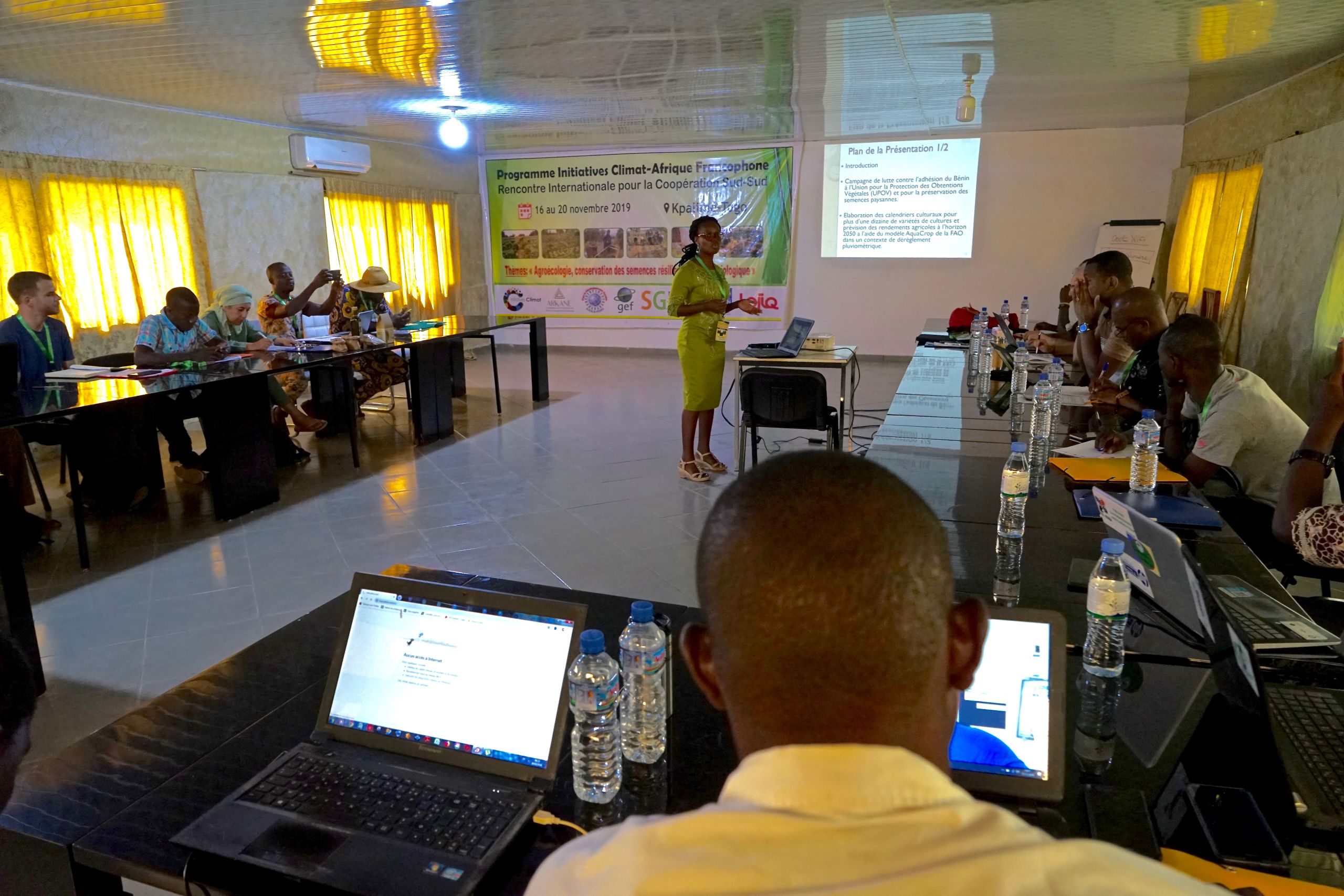
Collaborative agroecology training, Togo, 2019. Photo: Christian Auxemery/Initiatives Climat
Collaborative agroecology training, Togo, 2019. Photo: Christian Auxemery/Initiatives Climat
Climate Champions
The first major action by Initiatives Climat was to organize the annual ‘Trophies’ award to honour climate champion communities, including civil society representatives, green entrepreneurs, and women leaders.
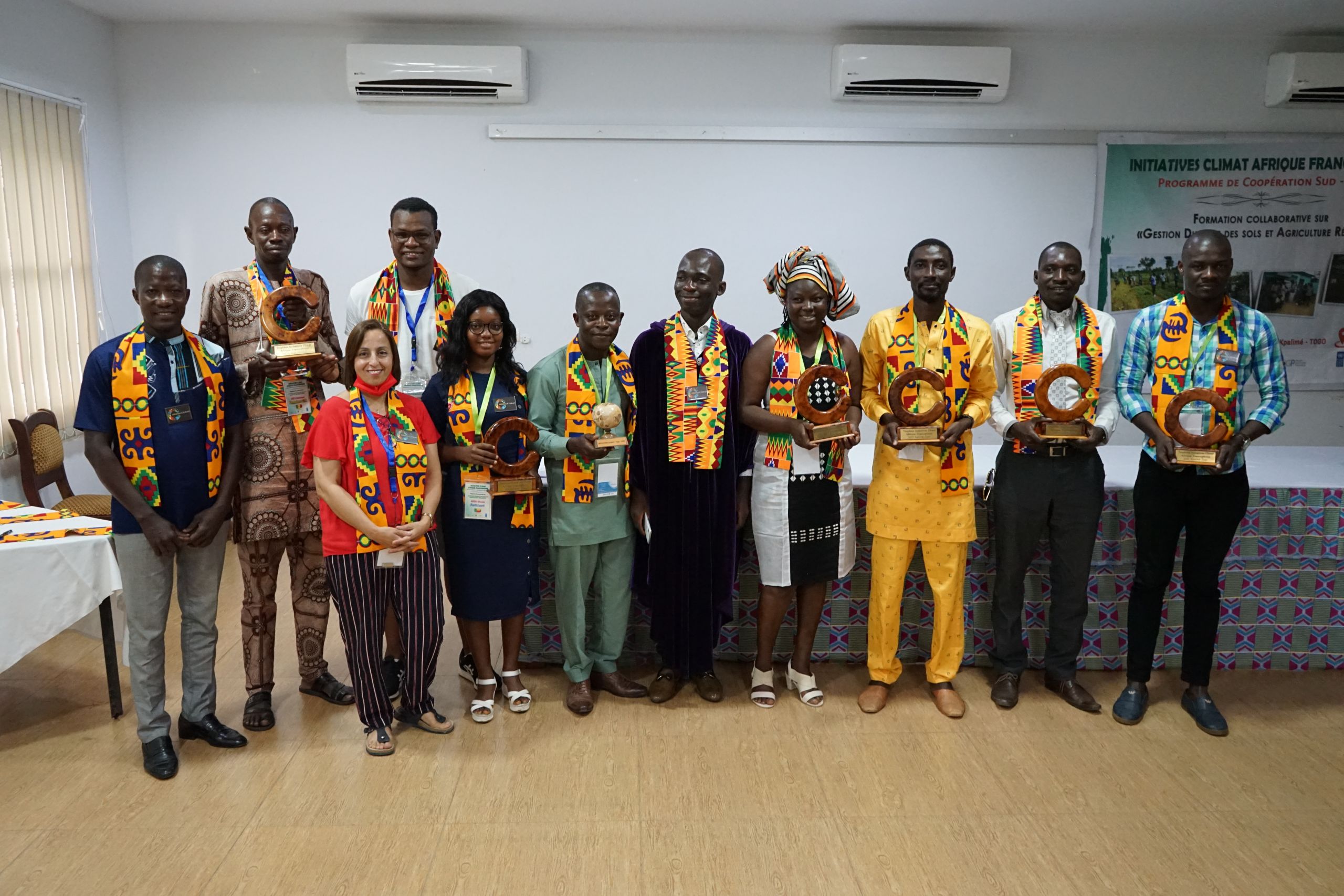
Presentation of the 2020 Initiatives Climat trophies. Photo: Christian Auxemery/Initiatives Climat
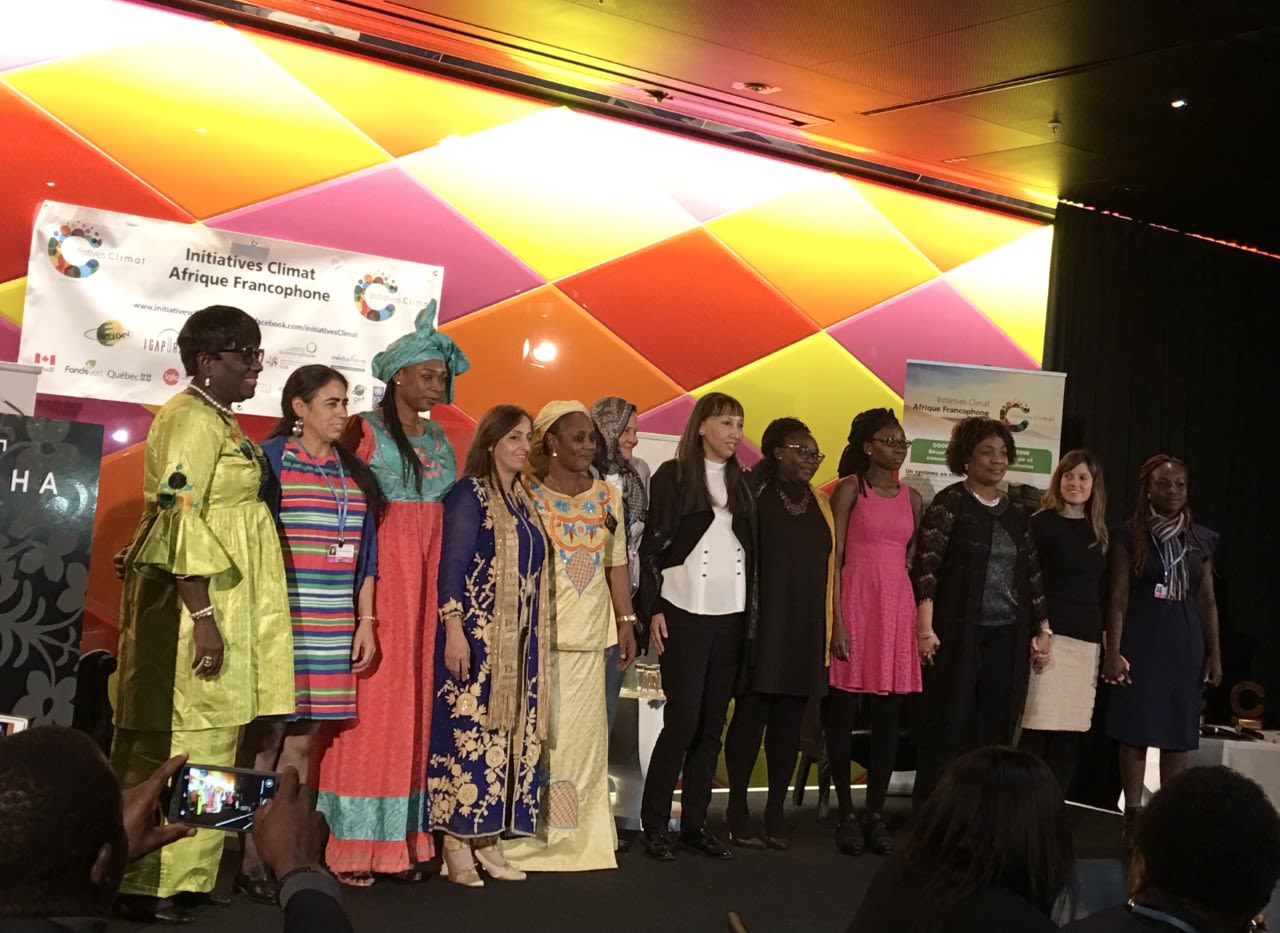
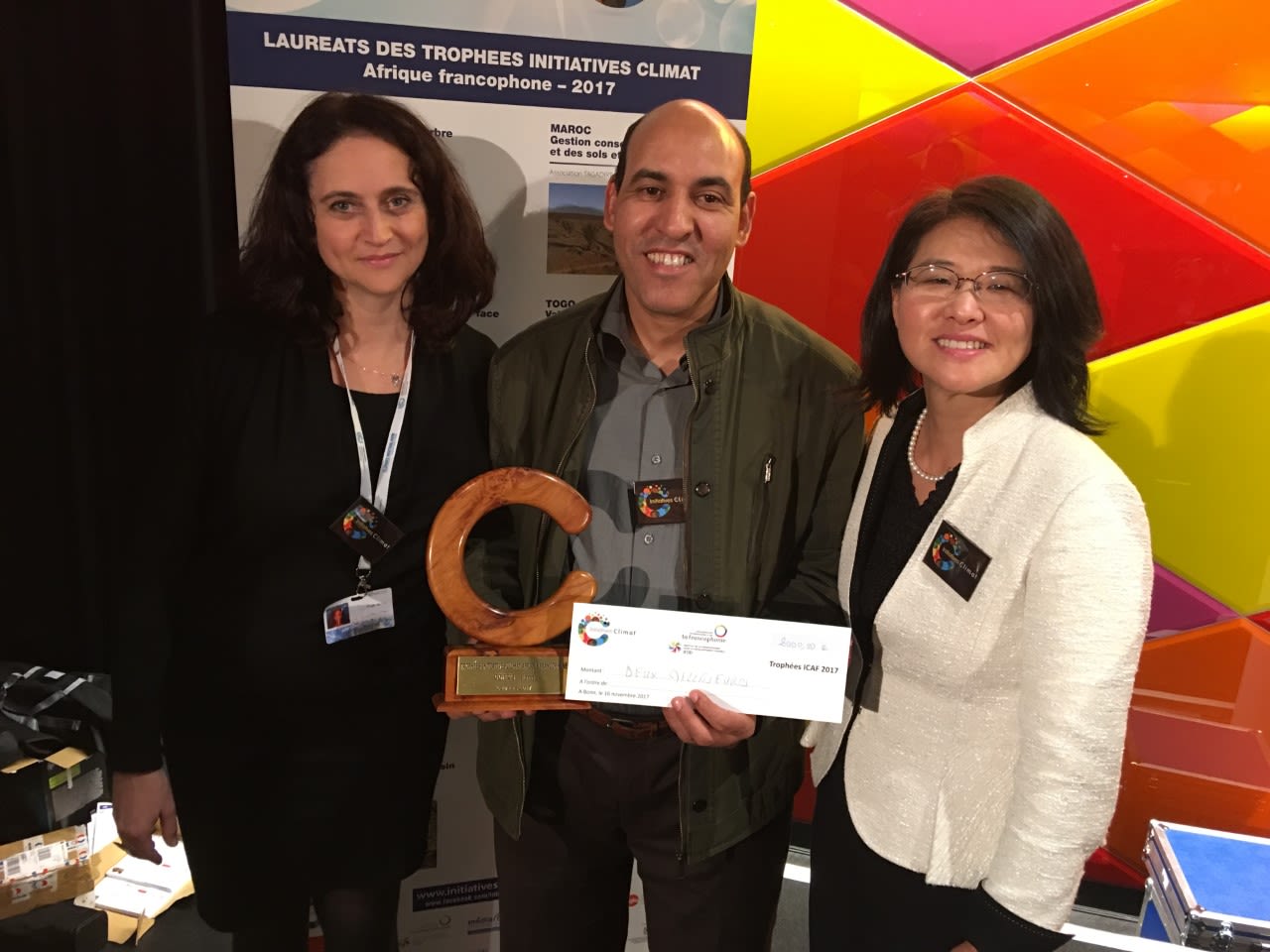
Initiatives Climat also created a virtual platform where the experiences and lessons learnt from these innovative initiatives (and many others from across the region) could be shared.
“Access to information is very important, and to be accessible the information has to exist. Initiatives Climat has carried out an enormous investigative work in Francophone Africa to create a database of different tools and local methodologies that are disappearing. Today, we have access to this information on a virtual platform designed by Initiatives Climat.”
The programme focuses on two areas: biofuels like green charcoal (a type of bio-fuel made out of natural biomass and waste), which can replace wood and fossil fuels used for energy and prevent deforestation, and agroecology, which applies ecological principles to agricultural systems and practices.
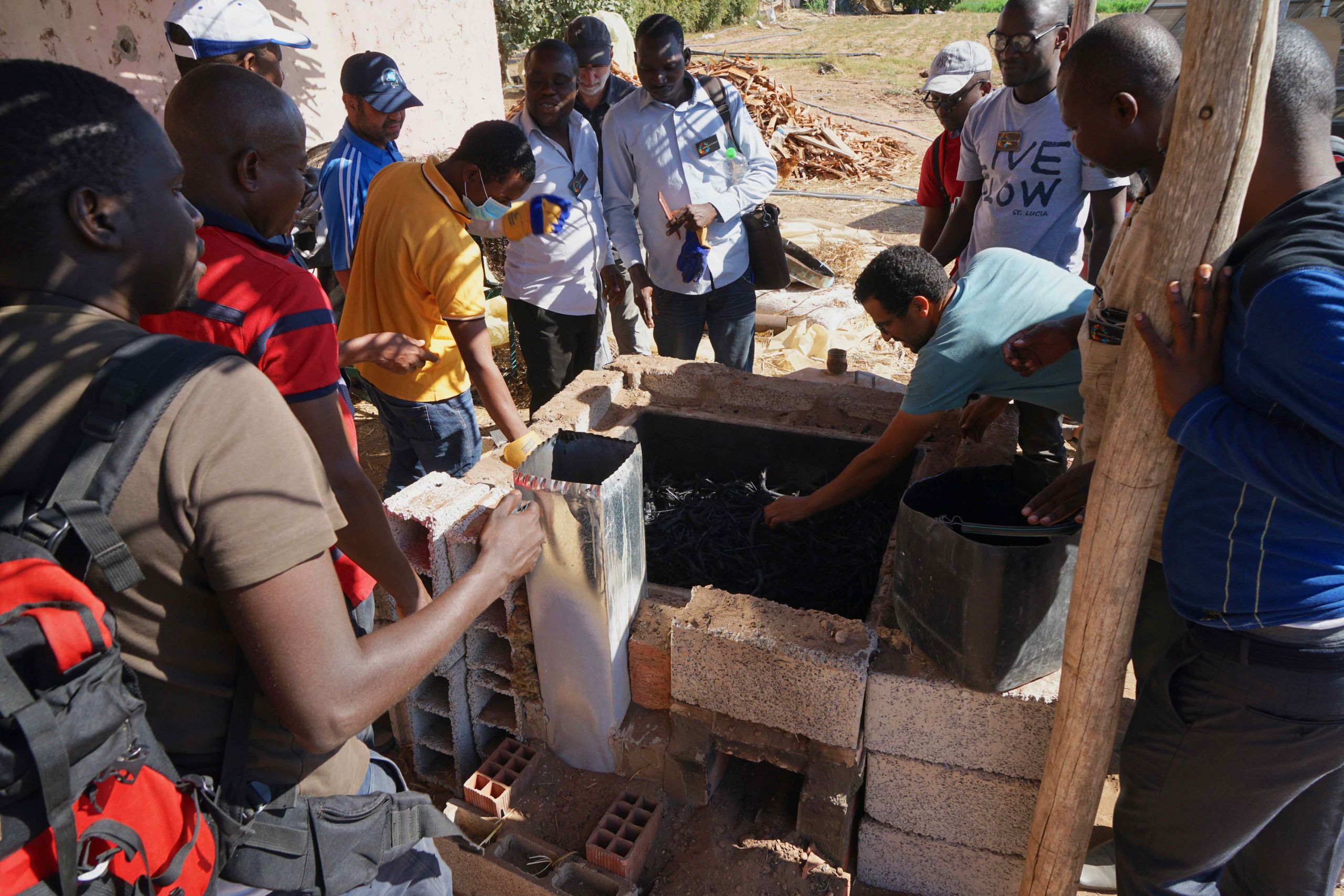
Green charcoal collaborative training in Morocco. Photo: Christian Auxemery/Initiatives Climat
To connect stakeholders from these industries, facilitate networking, and train national experts to disseminate good practices across the region, it created two clusters on green charcoal and agroecology that have organized 13 international training workshops with dozens of participants from 15 countries across Francophone Africa.
“These trainings are collaborative because you do not need an expert to come and talk about how farming is done. Instead, agroecologist activists who are on the ground share experiences and practices with others. This is not a training where someone comes to impose himself as a trainer, but rather a training that allows us to exchange between us, to see the practical aspects of our actions in the field.”
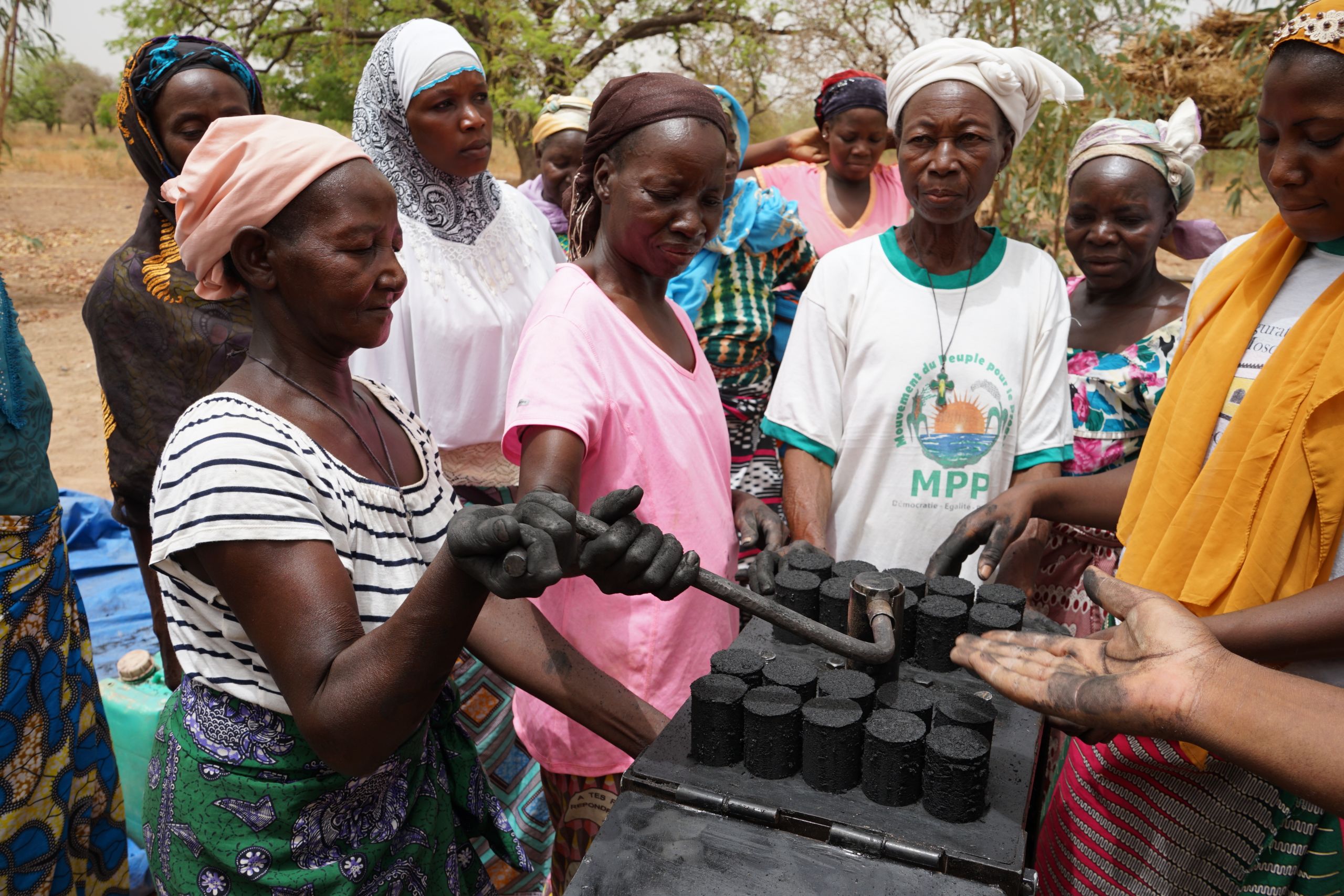
Green charcoal women's training in Burkina Faso. Photo: Christian Auxemery/Initiatives Climat
Initiatives Climat has also produced training manuals for each cluster, which are available online in French and English: “Guide to Green Charcoal Production” and “Farmer Seeds for a Better Resilience to Climate Change - Collection of Best Practices”.

Presentation of the 2020 Initiatives Climat trophies. Photo: Christian Auxemery/Initiatives Climat
Presentation of the 2020 Initiatives Climat trophies. Photo: Christian Auxemery/Initiatives Climat



Green charcoal collaborative training in Morocco. Photo: Christian Auxemery/Initiatives Climat
Green charcoal collaborative training in Morocco. Photo: Christian Auxemery/Initiatives Climat

Green charcoal women's training in Burkina Faso. Photo: Christian Auxemery/Initiatives Climat
Green charcoal women's training in Burkina Faso. Photo: Christian Auxemery/Initiatives Climat
The African Agroecology Cluster, South-South Cooperation Program, Initiatives Climat.
The African Agroecology Cluster, South-South Cooperation Program, Initiatives Climat.
“In a context of climate change, agroecology makes it possible to save and preserve soil micro-life, which depends on nutrients and important elements that allow plants and crops to grow. It also helps to conserve farmer seeds and allows farmers to recover their ancestral practices, making it possible to preserve traditional knowledge generated over centuries.”
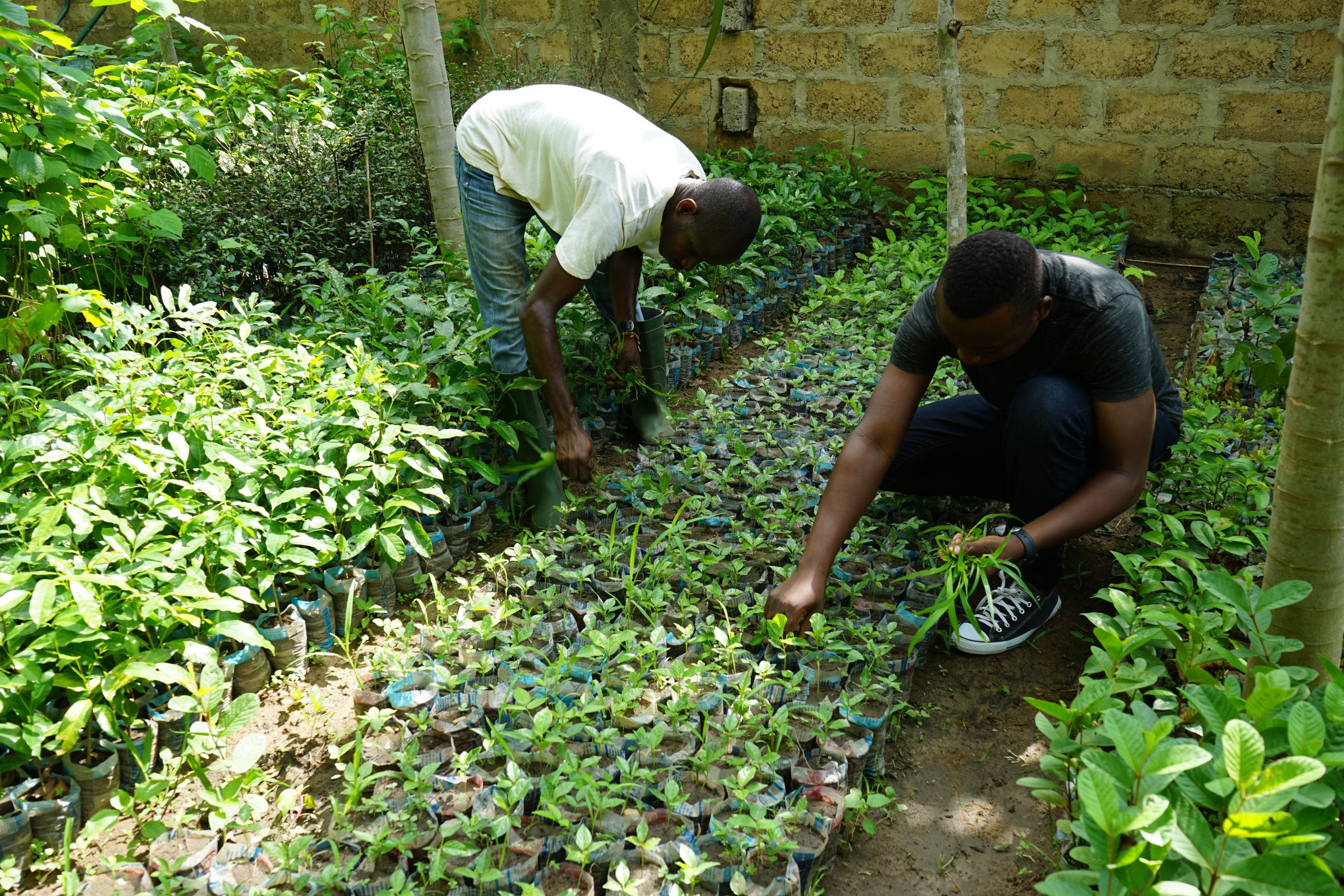
Nursery for replanting trees in Togo, 2020. Photo: Christian Auxemery/Initiatives Climat
Nursery for replanting trees in Togo, 2020. Photo: Christian Auxemery/Initiatives Climat
The African Green Charcoal Cluster, South-South Cooperation Programme, Initiatives Climat.
The African Green Charcoal Cluster, South-South Cooperation Programme, Initiatives Climat.
“Thanks to the cluster, the green charcoal industry is going to thrive. We are going to see spectacular growth over the coming years, and we are already seeing the environmental and economic benefits. Today, every entrepreneur knows that this cluster can help them set up their business and get access to the support they need to succeed.”
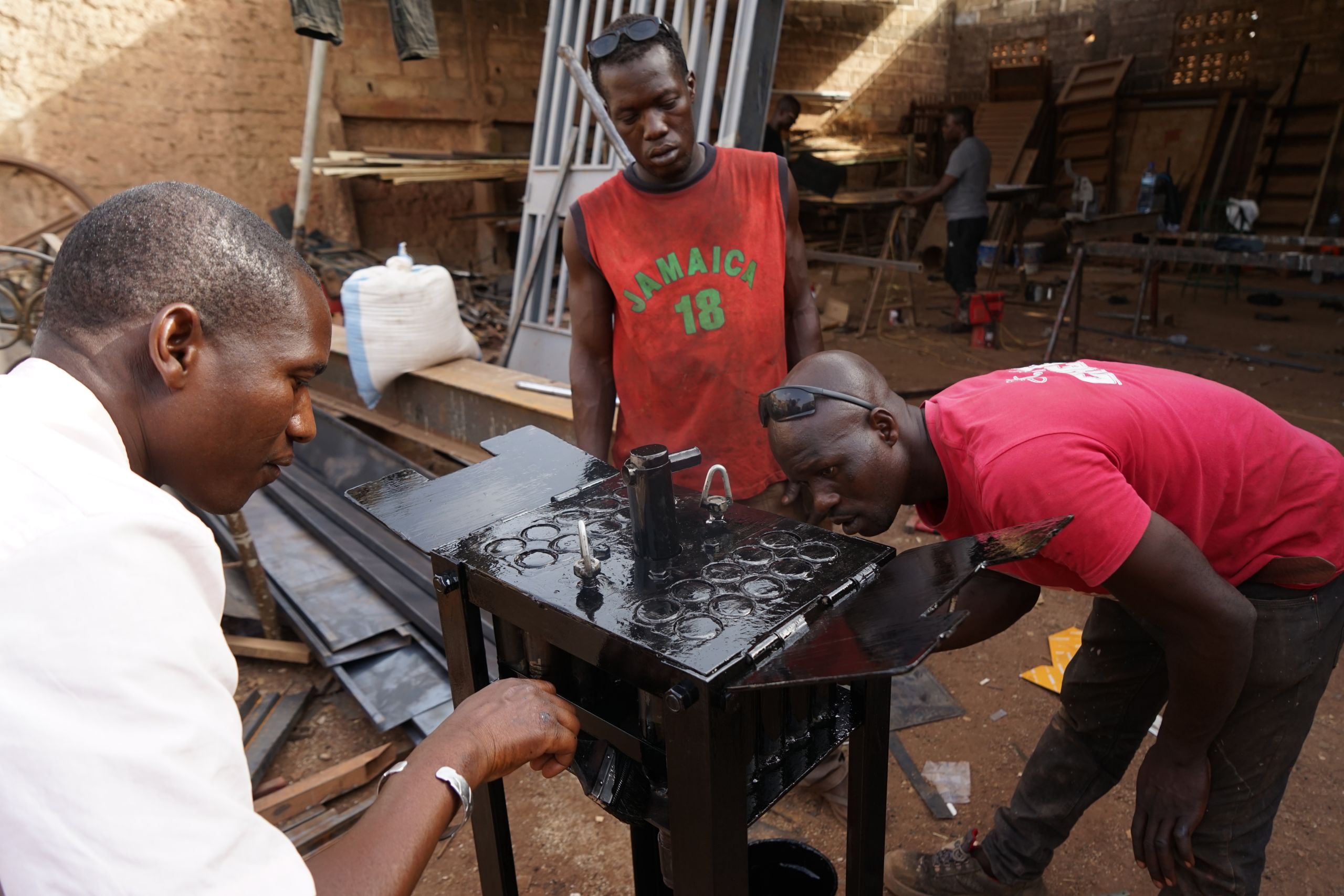
Manufacture of green charcoal compaction press. Photo: Christian Auxemery/Initiatives Climat
Manufacture of green charcoal compaction press. Photo: Christian Auxemery/Initiatives Climat
Despite its status as the continent whose people emit the lowest amount of per capita greenhouse gases in the world, Africa is one of the regions most threatened by climate change. Recurrent periods of drought and irregular rainfall caused by changing climate patterns impinge on agricultural production, induce water shortages, degrade soils, decrease wildlife and biodiversity, and displace people via extreme weather events as well as through the loss of natural resources needed for livelihoods.
All these effects lead to growing food insecurity and conspire to thwart efforts to achieve the Sustainable Development Goals in the region. Socio-economic factors, such as population growth, unsustainable agriculture practices, deforestation, and poaching also contribute to worsening this scenario in a context of scarcity of land and forest resources.
Although it currently has little existing capacity to adapt to climate change, Africa has a great deal of potential that can be developed to prevent further negative impacts in the future and protect vulnerable populations in fragile countries. With this in mind, SGP has been supporting Initiatives Climat since 2016, when Morocco hosted COP22.
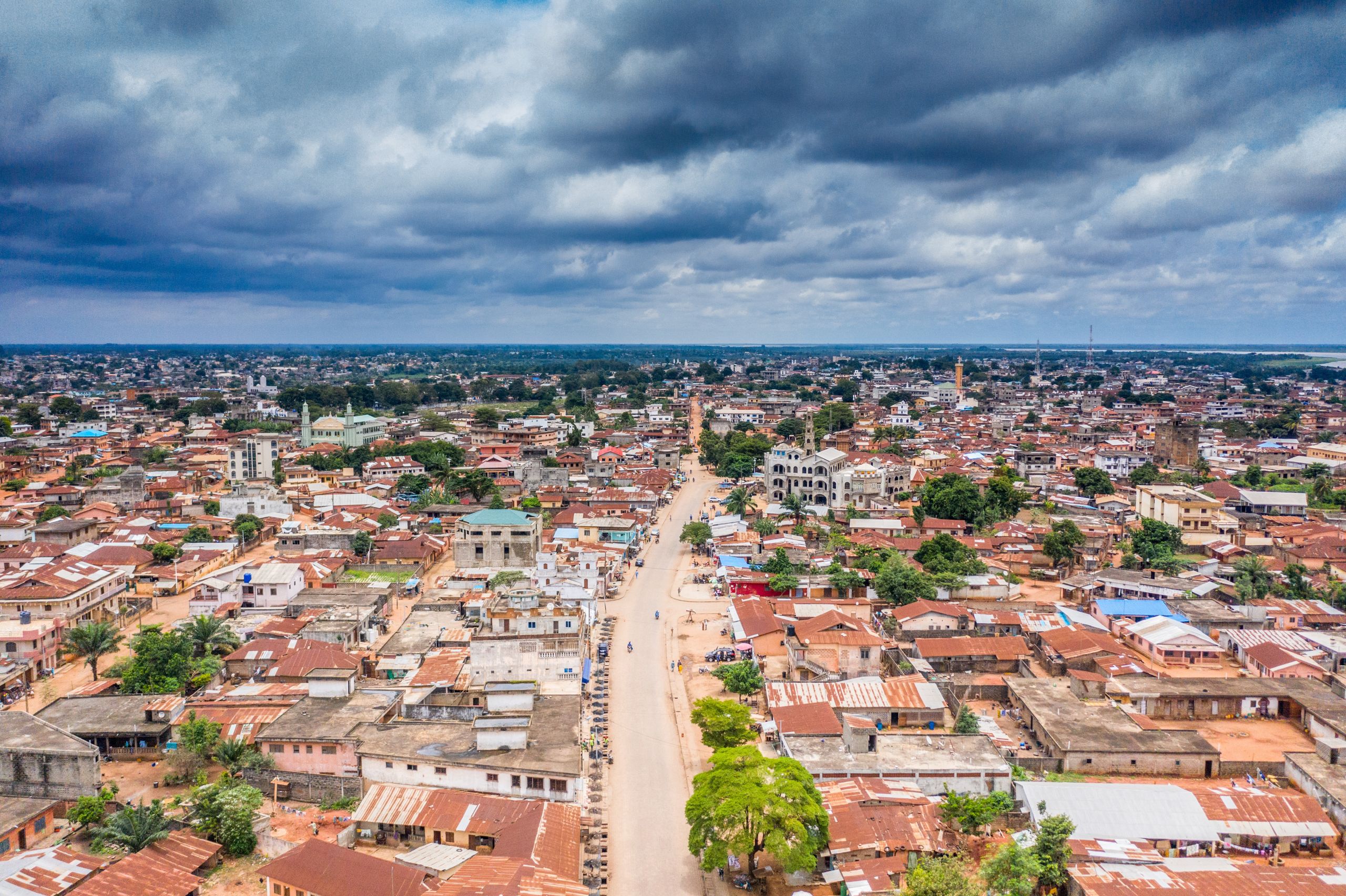
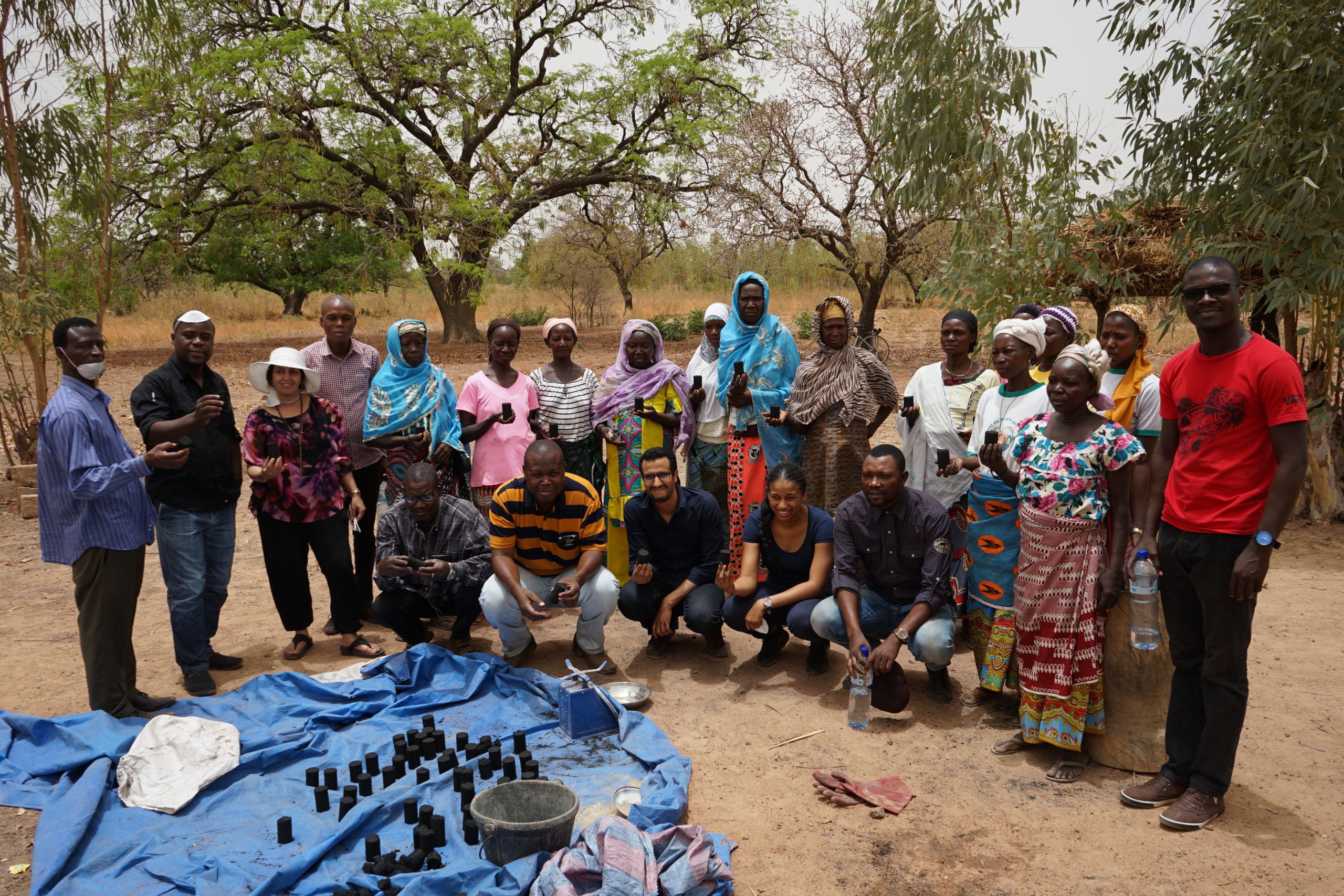
Green charcoal training in Burkina Faso. Photo Christian Auxemery
Green charcoal training in Burkina Faso. Photo Christian Auxemery
Concrete action
Today, Initiatives Climat has a network of 26 country correspondents in 14 French-speaking African countries. They promote the programme in their respective countries and support leaders who wish to submit their projects for the Initiatives Climat online database and the Trophies award. In addition, they help set up various South-South cooperation activities, including research and development workshops, collaborative trainings, production of publications and other documents.
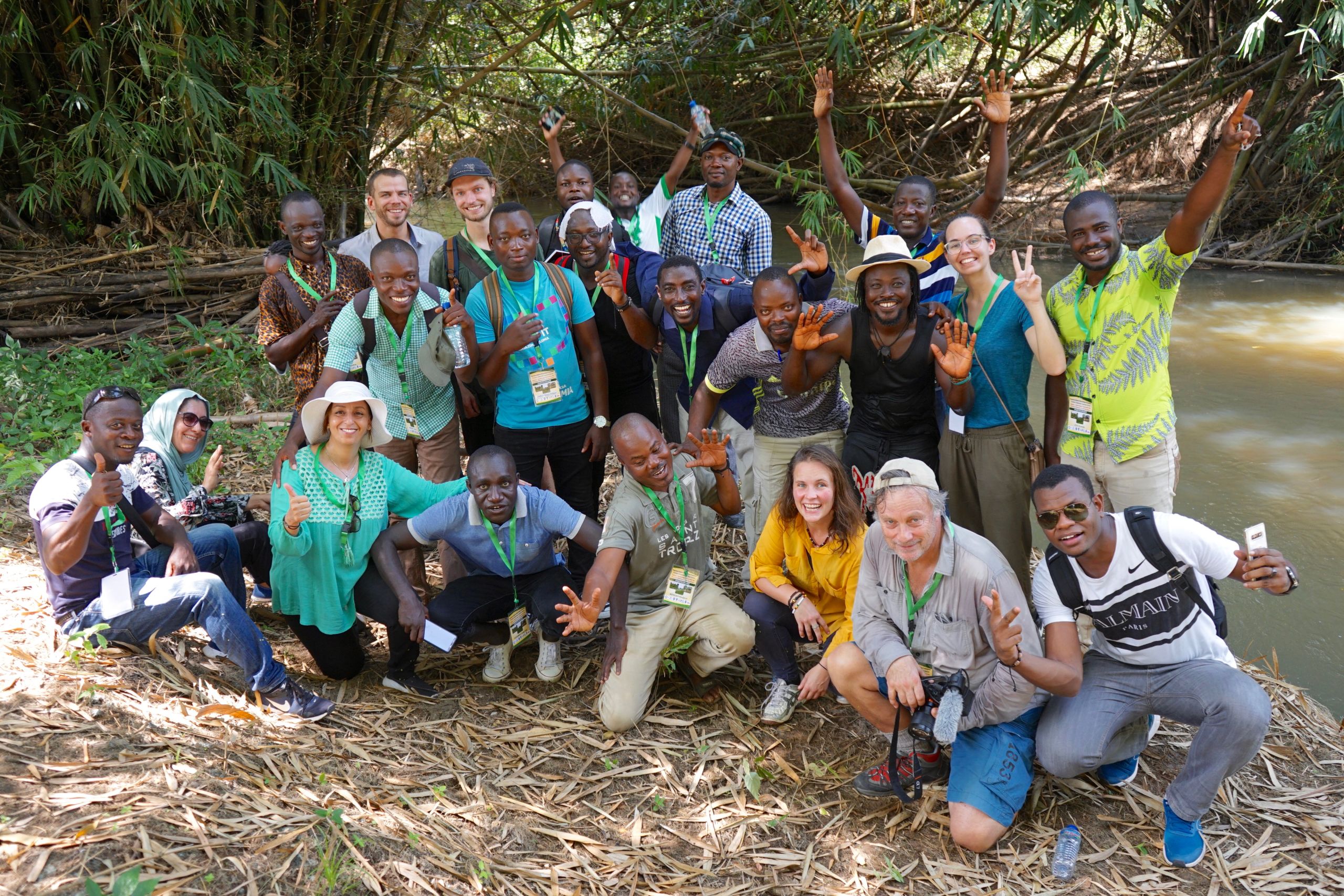
Collaborative agroecology training, Togo, 2019. Photo: Christian Auxemery/Initiatives Climat
Initiatives Climat also has a total of 258 project leads from 24 countries, who participate in training activities, implement good practices in the field, and disseminate information to the entire network. These project leads are a true source of inspiration; nearly 30 of them have already been nominated to or won an Initiatives Climat ‘Trophies’ award.
While the programme has trained around 200 people during in-person workshops, it has reached thousands more through its online publications and is currently developing four e-learning courses to expand their reach even further.
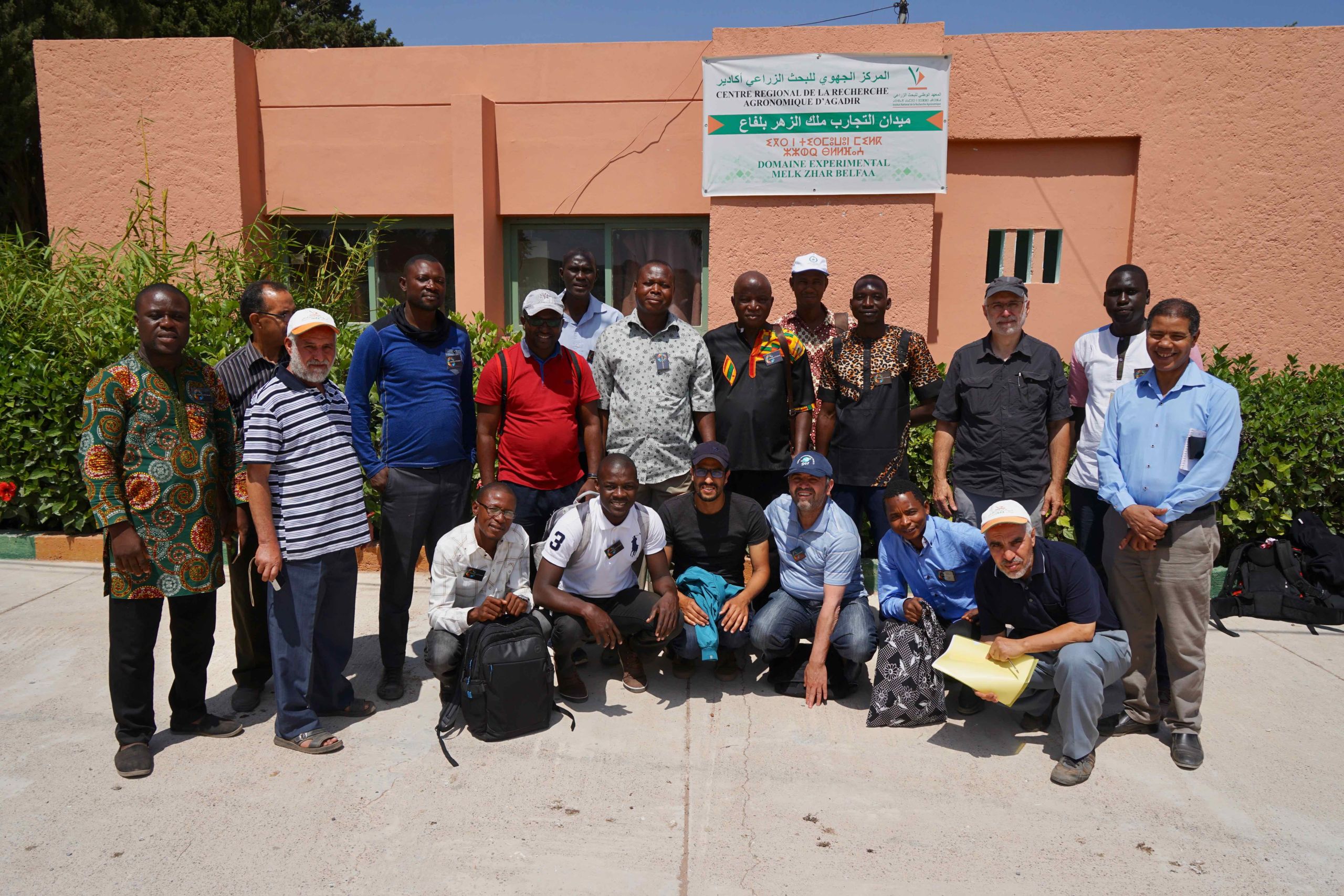
Collaborative green charcoal training, Morocco. Photo: Christian Auxemery/Initiatives Climat
Other important next steps to scale up successful local actions identified by Initiatives Climat include the promotion of technology transfer to produce green charcoal and energy-efficient stoves, and a South-South cooperation project that will set up six biological input production units in several countries, including Burkina Faso, Niger and Cote d'Ivoire.
“I have learned to interact with people, to exchange and share experiences. I am better informed, and this has improved my literary work and my educational work on eco-citizenship. Now I can better defend my vision of sustainable development that we need to promote, especially in Cote d'Ivoire. For me, the South-South cooperation within Initiatives Climat is very beautiful, it has concrete actions in its pragmatism and in its community dimension above all.”

Collaborative green charcoal training, Morocco. Photo: Christian Auxemery/Initiatives Climat

Collaborative agroecology training, Togo, 2019. Photo: Christian Auxemery/Initiatives Climat
Collaborative agroecology training, Togo, 2019. Photo: Christian Auxemery/Initiatives Climat

Collaborative green charcoal training, Morocco. Photo: Christian Auxemery/Initiatives Climat
Collaborative green charcoal training, Morocco. Photo: Christian Auxemery/Initiatives Climat

Collaborative green charcoal training, Morocco. Photo: Christian Auxemery/Initiatives Climat
Collaborative green charcoal training, Morocco. Photo: Christian Auxemery/Initiatives Climat
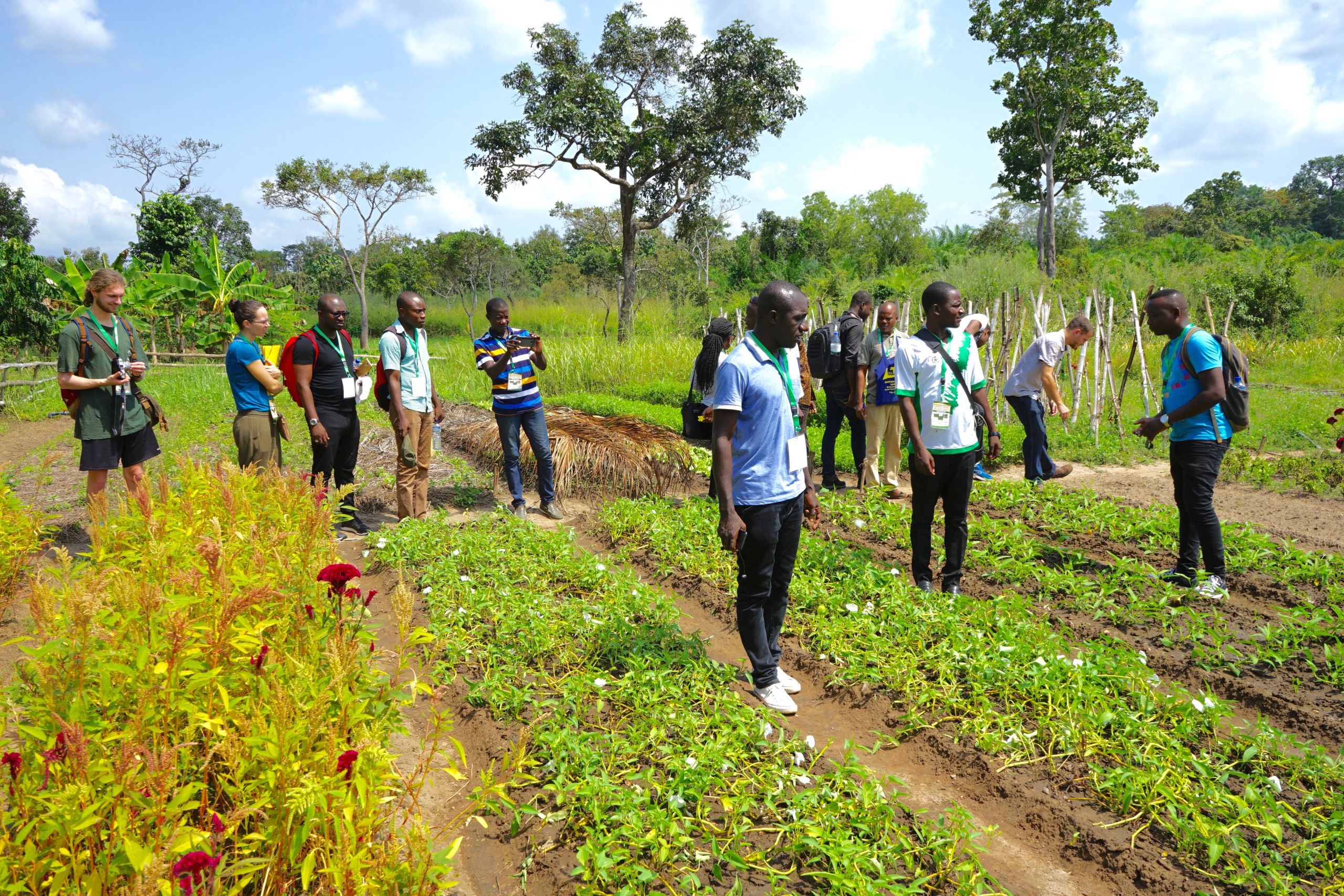
Collaborative agroecology training, Togo, 2019. Photo: Christian Auxemery/Initiatives Climat
Collaborative agroecology training, Togo, 2019. Photo: Christian Auxemery/Initiatives Climat
Local action = global impact
SGP provides financial and technical support to civil society and community-driven initiatives that address global environmental issues while improving local livelihoods.
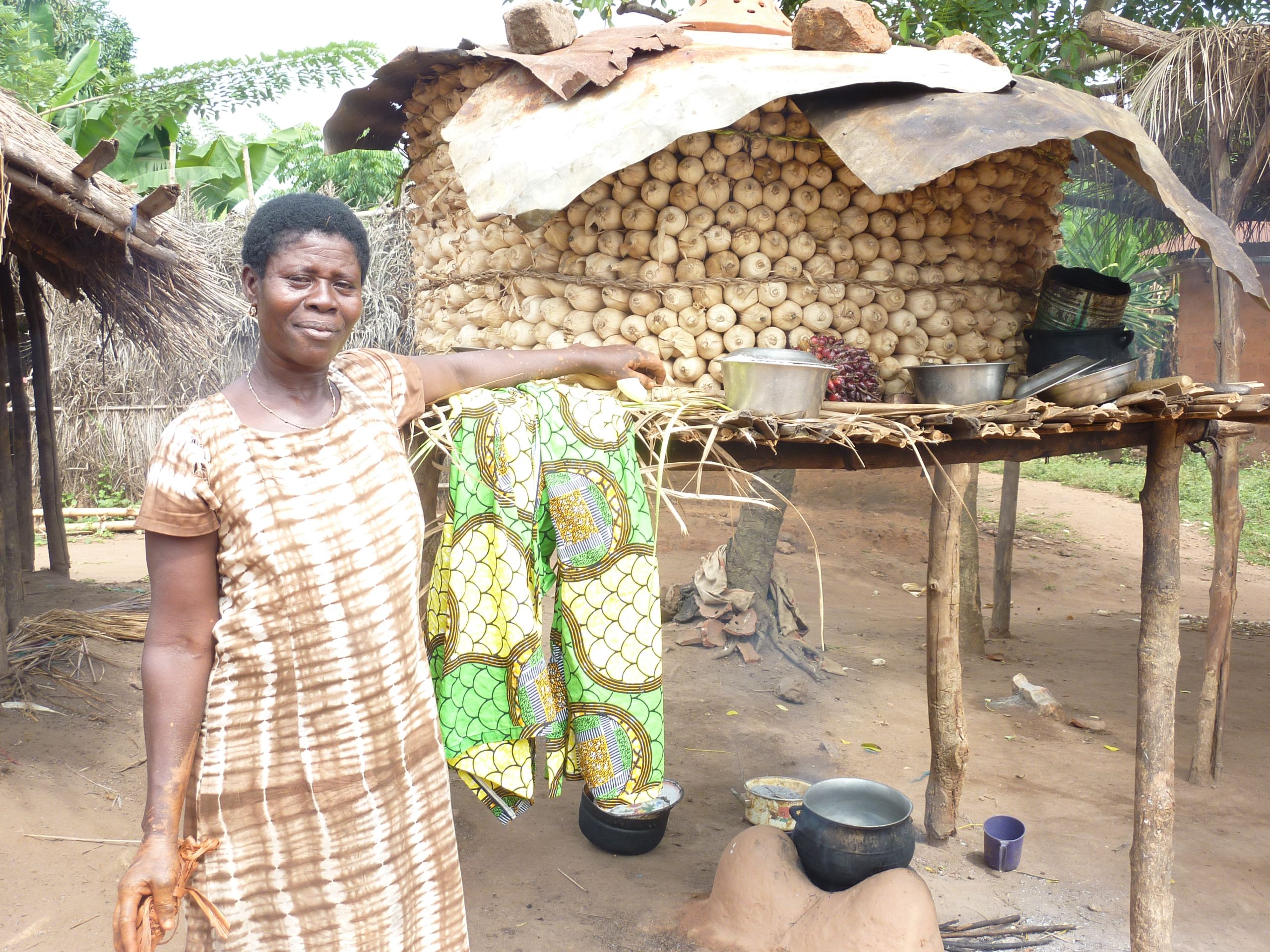
Mrs Ayélé in front of her corn granary as part of broader SGP support in Togo. Photo: UNDP Togo
Since its inception in 1992, the year of the Rio Earth Summit, it has supported thousands of projects in 45 countries across the African continent, addressing various issues in the areas of biodiversity, capacity development, land degradation, international waters, and climate change – including adaptation.
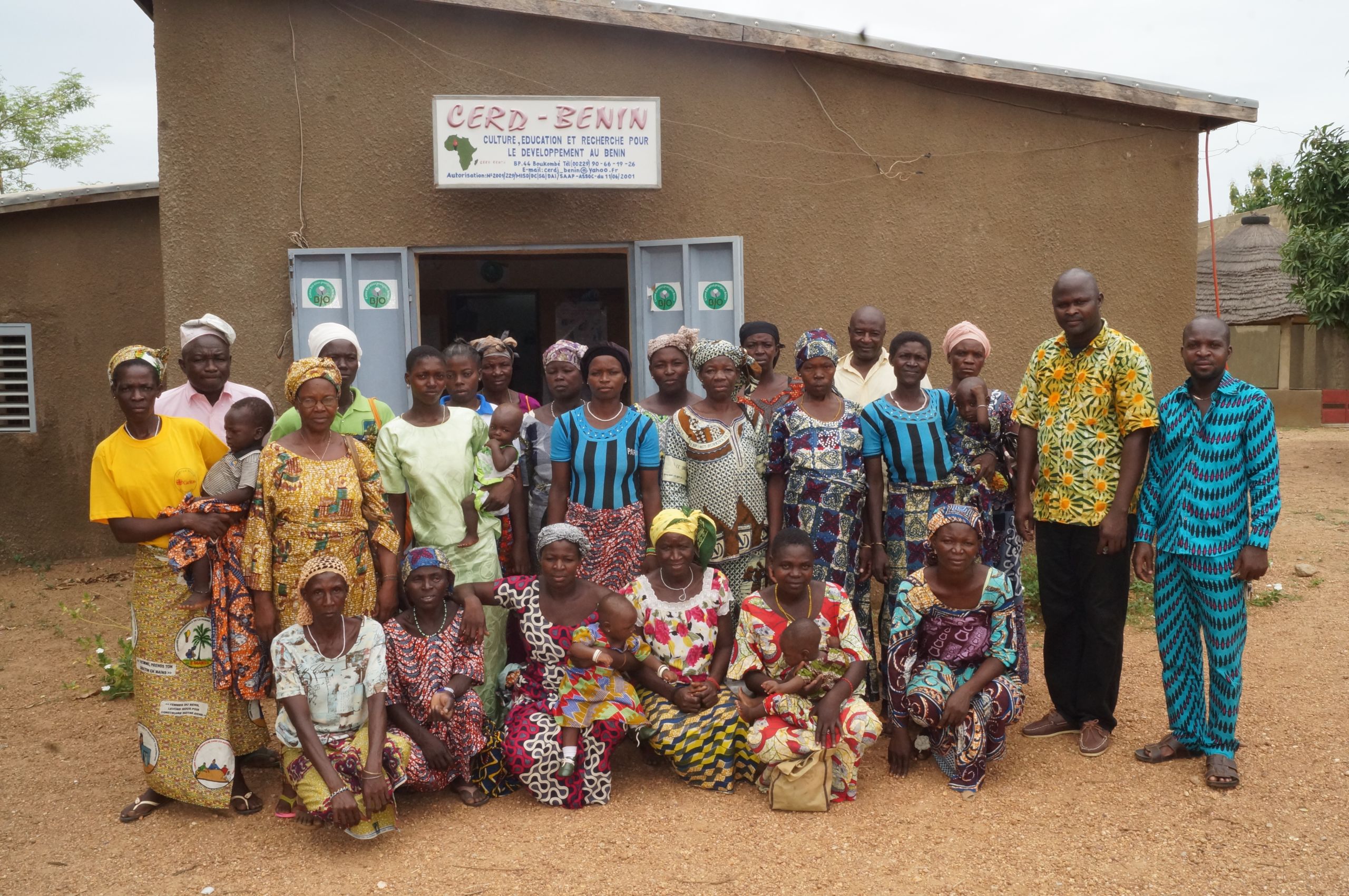
Family photo of AME women after their training on the development of the SGP Benin business plan. Photo: SGP Benin
SGP has been engaged in South-South cooperation as a supportive partner for many years. During its Sixth Operational Phase (2015-2018), SGP launched the “South-South Community Innovation Exchange Platform” as a targeted initiative for foster South-South cooperation.
The platform responds to the need for a proactive solution to promote cross-country and regional learning, since grantmaking and associated knowledge exchanges often happen at the national level.
Through this platform, SGP provides dedicated support for knowledge exchanges between its programme countries. The cross-country exchanges seek to transfer knowledge, encourage the replication of good practices at bilateral and regional levels, increase impact, scale up innovative solutions developed by grantees and partners, and enable broader links between CSOs at the regional level.
Read more in the publication, South-South Community Innovation Exchange Platform: The Experience of the GEF Small Grants Programme.
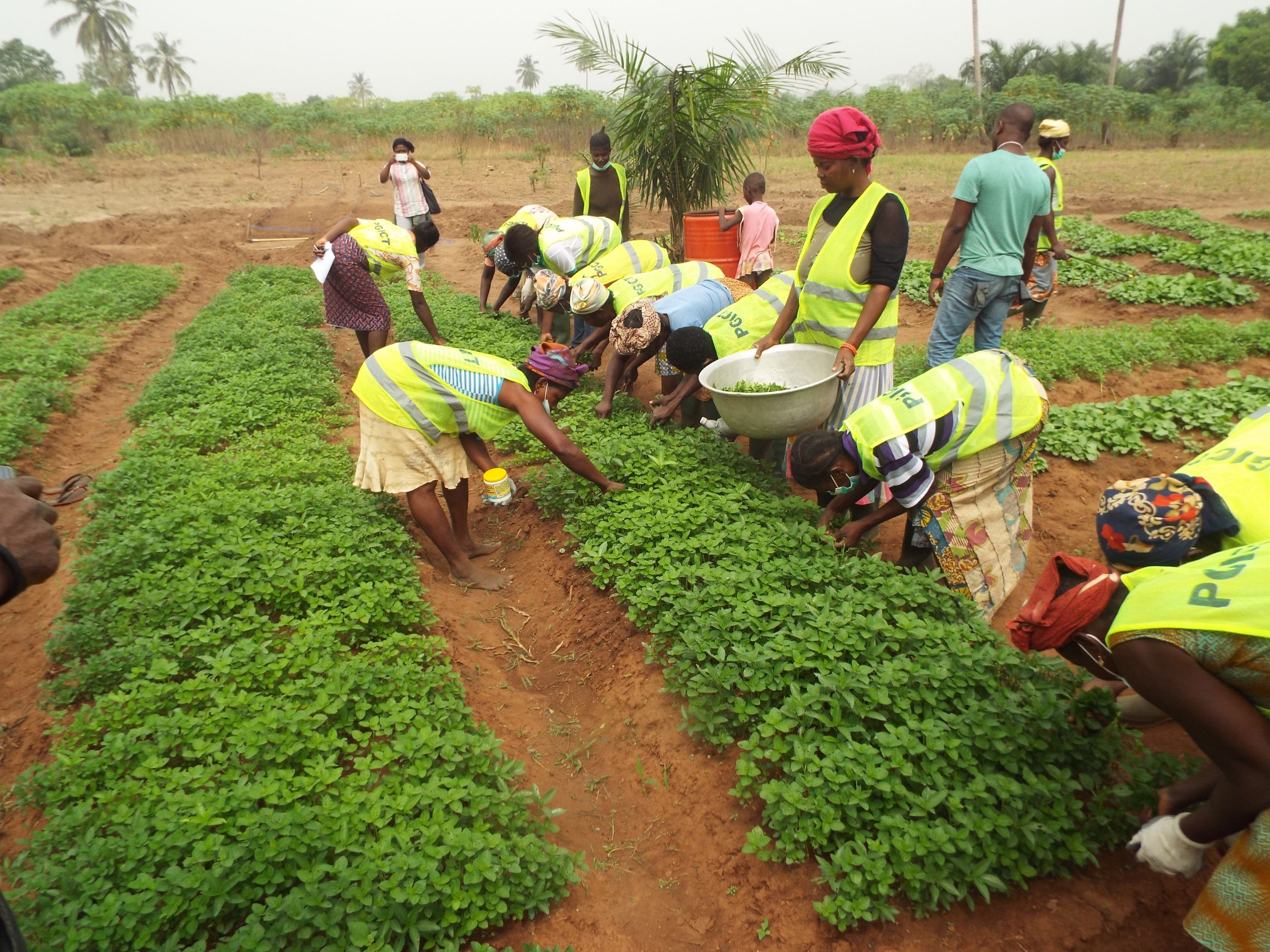
Harvesting vegetables on a market gardening site SGP Togo. Photo: SGP Togo
This publication showcases examples from SGP-supported projects that illustrate the importance of South-South Cooperation as a necessary tool for the achievement of the SDGs, particularly related to environmental and social goals.
South-South knowledge and innovation by civil society and communities can fill critical gaps in national action plans and produce timely and significant results.
To find out more, visit the SGP website.
The Initiatives Climat website is available in French; programme information is also available via Facebook.

Mrs Ayélé in front of her corn granary as part of broader SGP support in Togo. Photo: UNDP Togo
Mrs Ayélé in front of her corn granary as part of broader SGP support in Togo. Photo: UNDP Togo

Family photo of AME women after their training on the development of the SGP Benin business plan. Photo: SGP Benin
Family photo of AME women after their training on the development of the SGP Benin business plan. Photo: SGP Benin

Harvesting vegetables on a market gardening site SGP Togo. Photo: SGP Togo
Harvesting vegetables on a market gardening site SGP Togo. Photo: SGP Togo

Story by: Ana Paula Canestrelli, Andrea Egan, Benoit Théau and Meriem Houzir
Edited by: Angelica Shamerina and Yoko Watanabe
Visual layout: Andrea Egan
Photos: © UNDP Africa, SGP Africa, and others as noted.
Header photo: Green charcoal training in Burkina Faso. Photo: Christian Auxemery/Initiatives Climat
Location: Francophone Africa
